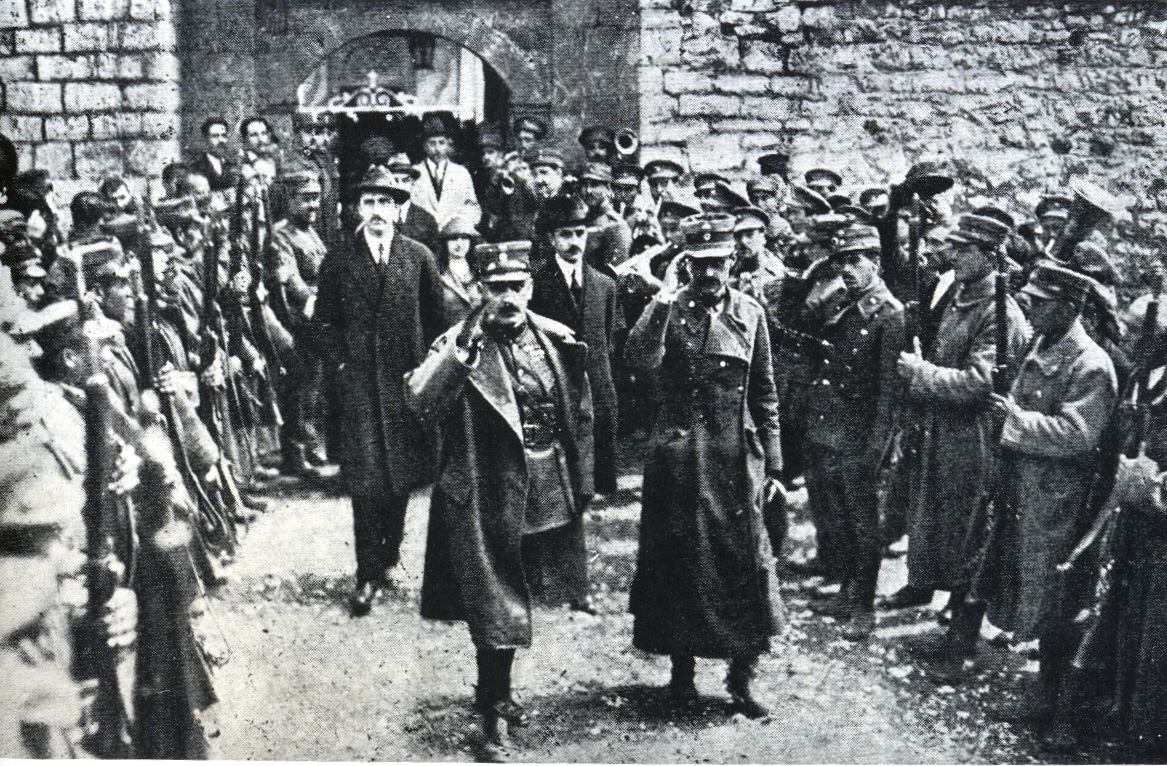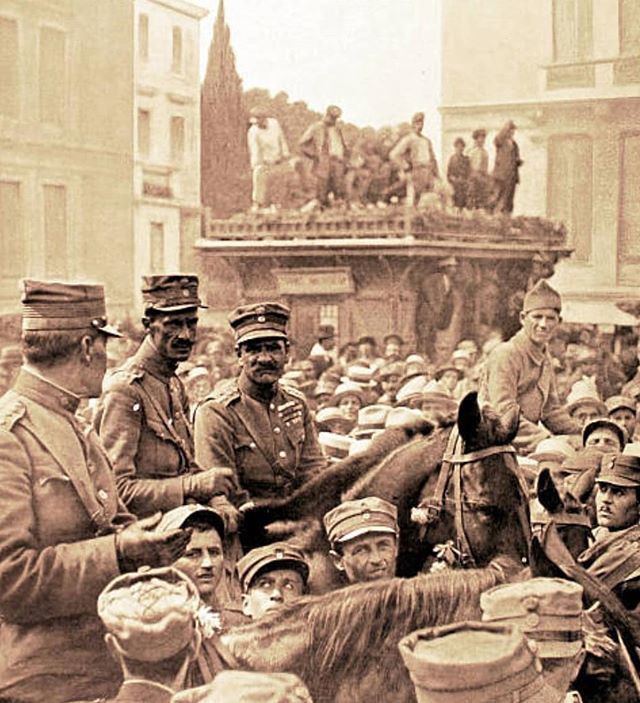with insightful commentary on the turbulent political and
military situation in Greece in 1922-23. At the end of this
section, a tragi-comic situation at the Greek Defense
Ministry takes place, first reported in April by TNT:
When Turks Took Greek Defense Ministry click here for
details.

Nikolaos Plastiras, Stylianos Gonatas and Georgios
Papandreou in Mousounitsa, northwest of Athens, on 11
September 1922.
When it comes to Greek Political and Administrative Life:
With regard to what we witnessed concerning the tumultuous
political
and administrative situation in Greece, there is plenty of evidence
that
it is morally bankrupt. Greeks
steal money out of each other’s pocket
and the ones who steals more get more
praise. When the Minister of
War issues
a military order its implementation is dependent on the
whim of a
sergeant. A lowly soldier who receives
an order from the
Council of Ministers can boldly cancel it and hide it without
putting it
into action and this is a commonplace occurrance.
In Greece, unlike in England or in France,
they conduct politics in a
much more partisan manner. With regard to these ferocious storms in
Greece that politics creates, I
personally heard from the mouth of a
university teacher who is a member of the
Royalist camp that Greece
is breathing
its last breath and it will fade into history as the victim of
these political
clashes, under blows inflicted by a strong Turkey,
Bulgaria and Serbia.
Currently in Greece, although the revolutionary party
represented the
Venizelos party and had been formed based on the precepts of
Venizelos,
subsequently, the party leaders discounted Venizelos’s political
doctrines
because of jealousy. So a third party,
more popular than the
Venizolsists and the Royalists, has begun show itself as
a political force
to be reckoned with.
Today in Greece the revolutionarly party, which is
made up of
Venizelos’ists and which engages in threatening political acts,
is terrorizing everyone, including the majority,
which is comprised of
the partisans of Gounaris and the late King Constantine.


Once peace comes, these bloody events and
reactions will engender
horrible consequences for Greece. This discord and, in particular, the
clash between the
Venizelos’ists and the revolutionaries, favors
Gonatas’s republic and runs
counter to the return of Venizelos. The
army, which was divided up between the competing
interest of the
politcal parties during the World War, is currently allied and
in
harmony with the general assembly that consists of the various
political
factions, such that the parties, which want to line the
commanders’ pockets,
are saying that enough blood has been spilled
in order to gain the backing of
the army commanders, effectively
decimating the Greek army. The
commanders are stealing the clothes
off the soldiers’ backs and even taking the
money in their officers’
pockets.
The
army’s current aspect is that of mutual robbery. The latest routs
have left Greece essentially
without an army. The revolutionary
committee says that, on paper, there may be a 70-80,000-man army
but even the
most ardent revolutionary says sincerely that “the army
will fire the first
cannon shot not on the enemy, but on those who
want war.” And “there’s been enough war. Besides, why
are we
fighting? Just like we couldn’t defend Anatolia,
neither can we
preserve Macedonia.
Because the more powerful Serbian
government is opposing us and has set
its eyes on Macedonia. We
cannot, of
course, return to the borders.”
The
secretly held opinion of most Greek soldiers and all the Greek
intellectuals is
that they see no harm now in openly opposing the
revolutionary administration. In the history of a nation there are
wondrous
and golden benchmarks and horrific and tragic ones, as
well.
At this point, I would like to offer a scene both tragic and comical,
unseen in any nation’s history. On the
day after the day that the
revolutionary forces, which had dismissed King Constantine
and
the parliamentarians, sent that famous airplane to terrorize Athens,
there
was a rumor that revolutionary soldiers had arrived at Piraeus
and were headed
for Athens via the Monastiraki hills. So
while
those bold Athenian youths who had challenged the world sought
a hole to
crawl into, the officials and guards at the Ministry of War,
including even the
bayonet-wielding soldiers at the door, fled.
As
a result, for a few hours, the great Ministry of War was in the hands
of Turkish prisoners who had been brought there as forced laborers to
carry the
Ministry’s files and registers. Not seeing any Greek officials
around, the
heroic Turks , resisting the urge to do their worst, closed
all the doors of
the Ministry offices, locked the front door and returned
to their prison camp
with the Ministry keys in their pockets.
So for a while the Greek Ministry of War was literally in the hands of
Turkish prisoners, as the Greeks had figuratively committed suicide.
//END of PART XXVII-B//
//END of PART XXVII-B//

Hiç yorum yok:
Yorum Gönder